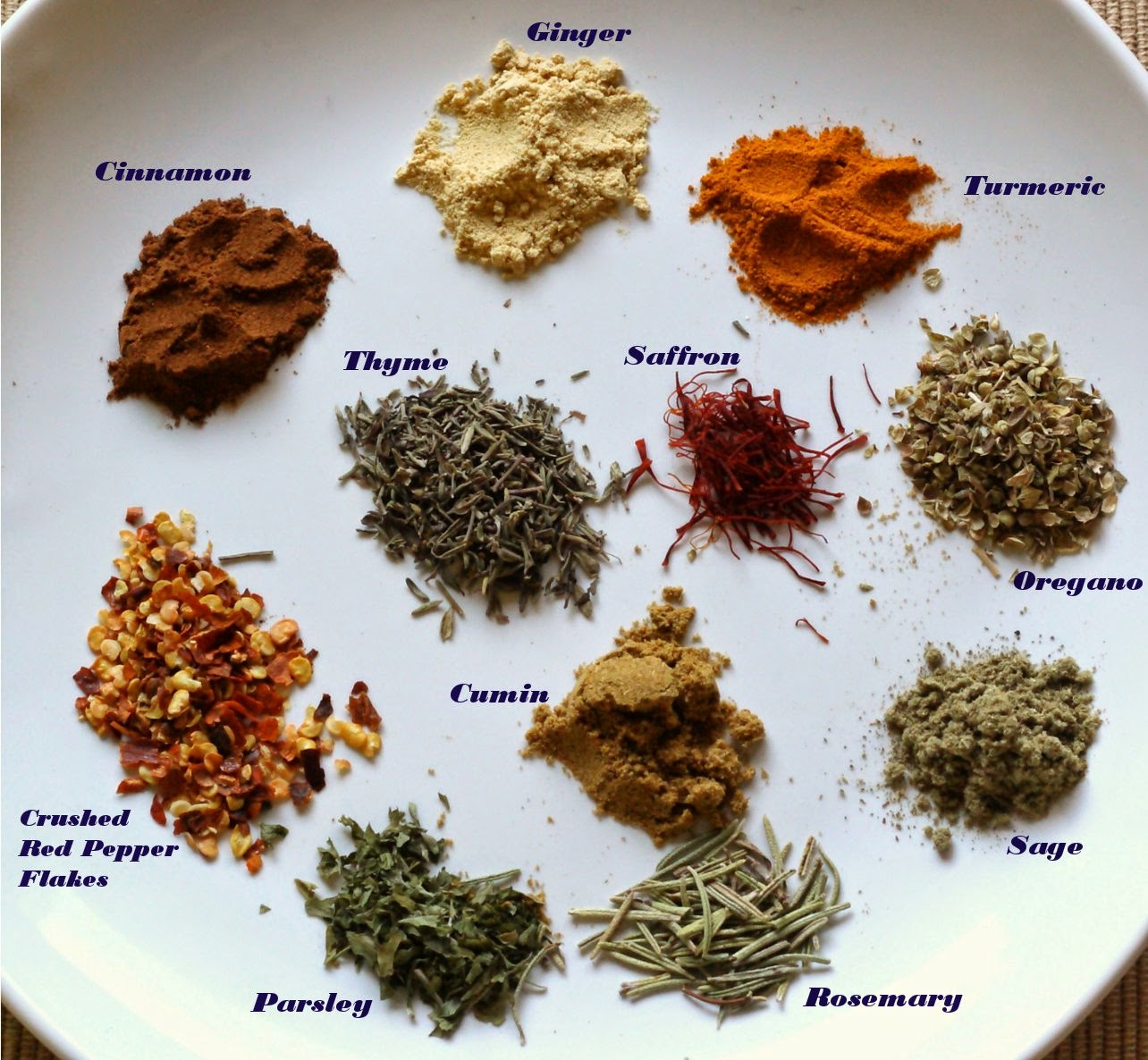Ah! The delightful fragrance of cinnamon wafting from an
apple pie draws you to it. If you decide to taste the pie, you can savor the
robust ginger in the amber juices. Perhaps you will detect a trace of nutmeg if
you lick your lips. Indeed, spices are the spice of life. The Greeks knew this
when their myths told of gods who valued spices above gold--a wreath of
rosemary, for example. Why do all these spices taste so delicious and have the
ability to enhance so many of our foods?
To me, there is only one logical explanation. Our evidently gourmet
God invented them for our pleasure. No
vanilla bean adapts so that it can be enjoyed in ice cream. No mustard plant
selects genes for their zestfulness, so we can have more flavorful sandwiches.
No sarsaparilla plant gets a genetic benefit by producing roots with a flavor that
satisfies in a frosty mug. Giving humans pleasure is not the business of plants;
it is the business of a caring God.
 Spices enrich a dish, delight the senses of both taste and
smell, and often offer some health benefit, such as aiding in digestion or
boosting the immune system. The most
ubiquitous spice may be cinnamon, having endless uses when a flavor that offers
warmth is desired. Just think, the scraping from a tree bark does everything
from complementing chocolate to inventing the cinnamon roll. Ancient Egyptians
used cinnamon and Hebrews offered it in consecrated incense. The ancient
nations considered cinnamon as a gift fit for kings and gods. Yet, we know it truly
is a gift to all humans, to be universally enjoyed.
Spices enrich a dish, delight the senses of both taste and
smell, and often offer some health benefit, such as aiding in digestion or
boosting the immune system. The most
ubiquitous spice may be cinnamon, having endless uses when a flavor that offers
warmth is desired. Just think, the scraping from a tree bark does everything
from complementing chocolate to inventing the cinnamon roll. Ancient Egyptians
used cinnamon and Hebrews offered it in consecrated incense. The ancient
nations considered cinnamon as a gift fit for kings and gods. Yet, we know it truly
is a gift to all humans, to be universally enjoyed.
Think about all the spices we like, from the bright flavors
of Curry, Caraway, and Cumin to the unique tastes of Basil, Sage, and Oregano. Then
there’s the licorice-taste of the aromatic Anise and my personal favorite, Mint. The bold fragrance of
Rosemary compliments many main dishes. Wildly popular are the almost unlimited
variety of peppers. There are black peppercorns, Jalapeno peppers, Paprika, and
the base pepper, Capsicum frutescens, from which comes cayenne pepper, tabasco,
and chili powder. The Hungarians had a saying about the fiery spice, Paprika.
“Some long for riches, and others for fame, but everyone yearns for paprika
goulash!” [1]
A delectable smorgasbord of flavors cannot simply be
dismissed as an “accident”. I do not
think even one gratifying spice could be a random occurrence. Certainly, over
300 spices pleasing to the palette are not the results of mindless mutations.
When one considers the variety and healthfulness of spices, the foregone
conclusion is that they are the result of intent, intent to be both pleasing
and healthy. Intent can only exist in the will or mind of a sentient being.
Ergo, there is a Creator; a Creator whose works can be described in terms of
unlimited creativity, gourmet sensibilities, and culinary mastery.

No comments:
Post a Comment